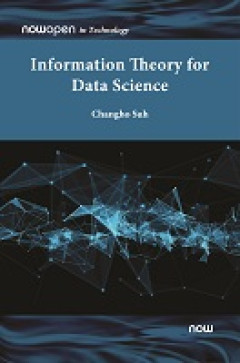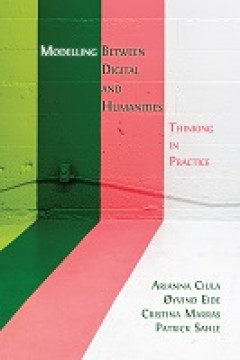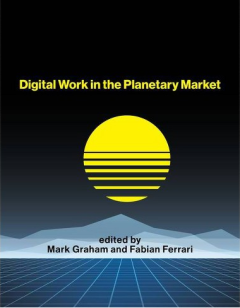Ditapis dengan

E-Book Information Theory for Data Science
Information theory deals with mathematical laws that govern the flow, representation and transmission of information. The most significant achievement of the field is the invention of digital communication which forms the basis of our daily-life digital products such as smart phones, laptops and any IoT devices. Recently it has also found important roles in a spotlight field that has been revol…
- Edisi
- -
- ISBN/ISSN
- 9781638281146
- Deskripsi Fisik
- 417 halaman
- Judul Seri
- -
- No. Panggil
- 600 SUH i

E-Book Modelling Between Digital and Humanities
This volume presents an exploration of Digital Humanities (DH), a field focused on the reciprocal transformation of digital technologies and humanities scholarship. Central to DH research is the practice of modelling, which involves translating intricate knowledge systems into computational models. This book addresses a fundamental query: How can an effective language be developed to conceptual…
- Edisi
- -
- ISBN/ISSN
- 9781805110989
- Deskripsi Fisik
- 238 halaman
- Judul Seri
- -
- No. Panggil
- 300.72 CAM s

E-Book Data Sovereignty: From the Digital Silk Road to the Return of the State
Digital sovereignty—the exercise of control over the Internet—is the ambition of the world’s leaders, from Australia to Zimbabwe, a bulwark against both foreign state and foreign corporation. Governments have resoundingly answered first-generation Internet law questions of who if anyone should regulate the Internet—they all will. The second-generation question to confront is not whether…
- Edisi
- -
- ISBN/ISSN
- 9780197582794
- Deskripsi Fisik
- 409 halaman
- Judul Seri
- -
- No. Panggil
- 005.7 CHA d

E-Book Health Care in the Information Society Vol 1: From Adventure of Ideas …
In this fascinating book David Ingram traces the history of information technology and health informatics from its pioneers in the middle of the twentieth century to its latest developments. The book is distinctive in its broad scope and coverage and as the eyewitness account of an author who became the first UK professor appointed with the mission to bridge information technology with everyday…
- Edisi
- -
- ISBN/ISSN
- 9781800649521
- Deskripsi Fisik
- 512 halaman
- Judul Seri
- -
- No. Panggil
- 613.6 ING h

E-Book AI Art
Can computers be creative? Is algorithmic art just a form of Candy Crush? Cutting through the smoke and mirrors surrounding computation, robotics and artificial intelligence, Joanna Zylinska argues that, to understand the promise of AI for the creative fields, we must not confine ourselves solely to the realm of aesthetics. Instead, we need to address the role and position of the human in the c…
- Edisi
- -
- ISBN/ISSN
- 9781785420863
- Deskripsi Fisik
- 181 halaman
- Judul Seri
- -
- No. Panggil
- 006.3 ZYL a

E-book Digital Work in the Planetary Market
Understanding the embedded and disembedded, material and immaterial, territorialized and deterritorialized natures of digital work. Many jobs today can be done from anywhere. Digital technology and widespread internet connectivity allow almost anyone, anywhere, to connect to anyone else to communicate and exchange files, data, video, and audio. In other words, work can be deterritorialized at a…
- Edisi
- -
- ISBN/ISSN
- 9780262543767
- Deskripsi Fisik
- viii, 356hlm. : ill
- Judul Seri
- -
- No. Panggil
- 306.36 GRA d
 Karya Umum
Karya Umum  Filsafat
Filsafat  Agama
Agama  Ilmu-ilmu Sosial
Ilmu-ilmu Sosial  Bahasa
Bahasa  Ilmu-ilmu Murni
Ilmu-ilmu Murni  Ilmu-ilmu Terapan
Ilmu-ilmu Terapan  Kesenian, Hiburan, dan Olahraga
Kesenian, Hiburan, dan Olahraga  Kesusastraan
Kesusastraan  Geografi dan Sejarah
Geografi dan Sejarah